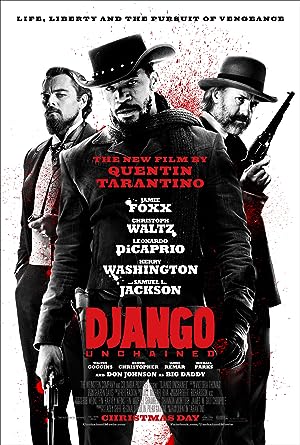SPOILER ALERT
I went into the movie with ridiculously high “Inglorious Basterds” expectations for Django Unchained, but instead the only surprise that I had was that Quentin introduced a new trope: the magical European. Why did he immigrate to US? What made him feel so sympathetic? Nope. He just serves as a magical device to reunite a family & empower the main character–something that the magical Negro usually does. Unfortunately the story stopped feeling plausible when Django was willing to wait so long to rescue his wife, especially considering that he knew what could happen to her, & Broomhilda faints and is generally in hysterics. There was a vast boring stretch after the KKK ride and then until they head to Candyland. I’m not saying that Quentin’s movie doesn’t have moments. He powerfully uses historical moments to strike a blow into the audience to reveal actual daily brutality of slavery and the aggressive curiosity over black (female) bodies (think Hottentot Venus), but in the end, he fails where he succeeded in I.B. In I.B., he completely re-imagined & redeemed history through art & believed in the power of movies to win wars whereas in Django, he reveals that he is imprisoned by it & suffers (& understandably so) from John Irving guilt over the sins committed by his ancestors–so much so that he had to import a sympathetic white character (or is it an allusion to future Civil Rights alliances) and has a cameo in which he suffers one of the worst deaths in the movie. He can only imagine a world where law fails, the majority of people deserve death, even the art of performance and words ultimately fail and there is no such thing as redemption through art. This is his most pessimistic film to date despite the great humor throughout the film. There is no broader redemption or reimagining/radicalizing of historic events–he can only imagine two people being saved. The only true failure of the movie: the constant statement that something is special about Django (“one in a thousand”) or that there were more “enlightened” places to escape to, which relatively is true, but is an understandable oversimplification of Northern race relations. In the end, I do appreciate that Tarantino refuses to compromise in face of evil, shake hands or make nice.
Stay In The Know
Join my mailing list to get updates about recent reviews, upcoming speaking engagements, and film news.





